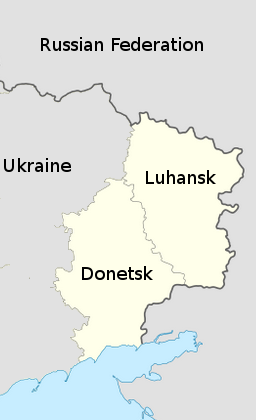A high-profile New York Times article today trumpets the story that Russian NGOs are “crowdfunding” the Ukrainian Civil War, raising money to subsidize the various rebel factions in Eastern Ukraine to resist the invasion by the US-backed government.
 The report villainizes this, naturally, and complains that the funding must have the Russian government’s tacit support since the NGOs haven’t been shut down yet. Yet this is far from a unique situation, and crowdfunding wars seems to be a growing situation the world over.
The report villainizes this, naturally, and complains that the funding must have the Russian government’s tacit support since the NGOs haven’t been shut down yet. Yet this is far from a unique situation, and crowdfunding wars seems to be a growing situation the world over.
Terrorist groups have been crowdfunding for years, and would-be ISIS recruits are regularly using crowdfunding to pay for their trips to Syria to join them. It’s not even just the one side in the ISIS war, a US-based NGO made up of former special forces has been crowdfunding an effort to pay for “humanitarian” aid to Kurdish groups, which broadly defines humanitarian aid to include “combat training.” Assyrian Christian groups on the outskirts of Mosul have similarly crowdfunding their own army to resist ISIS.
Crowdfunding has become such a thing that seemingly every war lately ends up having efforts to crowdfund on their side. A group in Canada aimed to raise money during last summer’s Gaza War to buy an Iron Dome missile for the Israeli military.
While it’s gotten bigger and more distributed with the advent of the Internet and social media, private funding for foreign wars is an extremely old tactic dating back centuries. Americans have been involved in this off and on, including ever-hawkish Rep. Peter King (R – NY), who for years fundraised for IRA terrorists as part of the Noraid movement, backing attacks against “British imperialism.”
Civil wars and insurgencies are the most likely types of wars to receive this sort of funding, as these groups tend to have less traditional funding through taxation to pay for their wars. It’s unsurprising, then, for the Ukraine war’s rebels to be getting such support from NGOs abroad, and hardly an example of blazing new trails.


